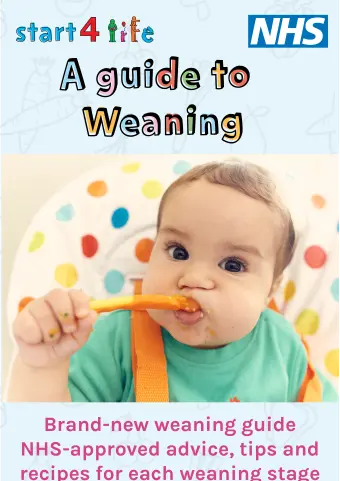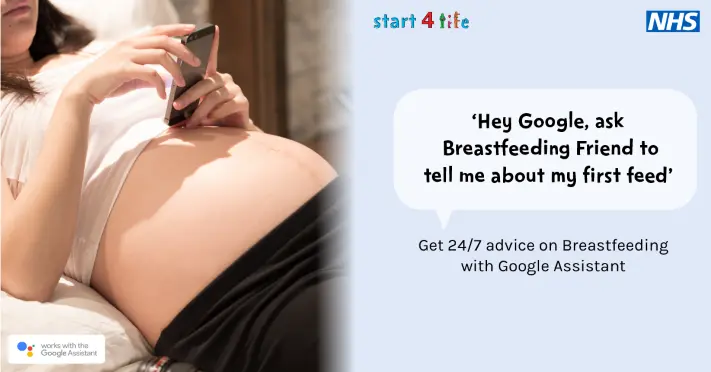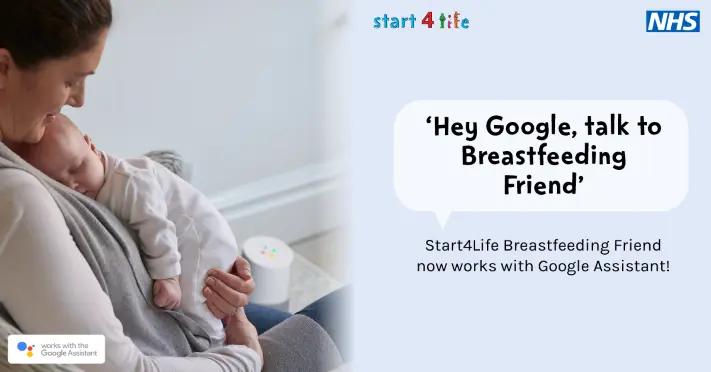Public Health England (PHE) has launched its first ever Start4Life campaign to help parents introduce their baby to solid foods.
Official advice is that most babies should not start solid foods until they are around six months old. By this point their bodies are better able to cope with solid foods and they are more able feed themselves. They are also better at moving food around their mouth, chewing and swallowing.
Dr Cheryll Adams, Executive Director of the Institute of Health Visiting, commented:
“This is very helpful advice. PHE’s new Start4Life hub contains lots of important information that will help parents feel confident introducing solid foods to their baby for the first time. We recommend that mums still unsure about how to wean their children ring their health visitor or attend a child health clinic to seek advice.”
The brand-new weaning hub has been launched on the Start4Life website to help parents during their weaning journey. Packed with NHS-approved advice and tips for each weaning stage, plus simple, healthy weaning recipes for different age groups, it puts everything parents need to know in one place. It also includes new videos showing the signs that indicate babies are ready to wean, how much food to give, and weaning tips from other parents.
A new survey of 1,000 mothers of young children conducted for Public Health England found that common myths persist about the signs a baby is ready for their first solid foods, including:
- Just under half of mums (46%) think wanting extra milk feeds is a sign that babies are ready for solid foods;
- A third of mums (32%) believe that a baby chewing their fists is a sign that they are ready to start weaning;
- Just under a quarter of mums (24%) believe that waking up in the night is a sign a baby is ready for weaning.
The survey revealed that many parents have concerns around weaning with more than a quarter saying they didn’t feel confident when they introduced solid foods to their baby. Choking topped the list of worries about weaning, with mums also concerned about allergic reactions to new foods, how much food to give their baby, and concern that their baby won’t eat enough or will reject food.
Telling parents about the hub is a simple way to help them access information that they know they can trust. To support your conversations, PHE has created a new weaning leaflet which is available to order free of charge by health visitors and early years professionals via the PHE Campaign Resource Centre. It comes in a handy pocket-size format which folds out to a wall-planner, with tips for each stage of weaning. A social media toolkit is also available on the Campaign Resource Centre.





